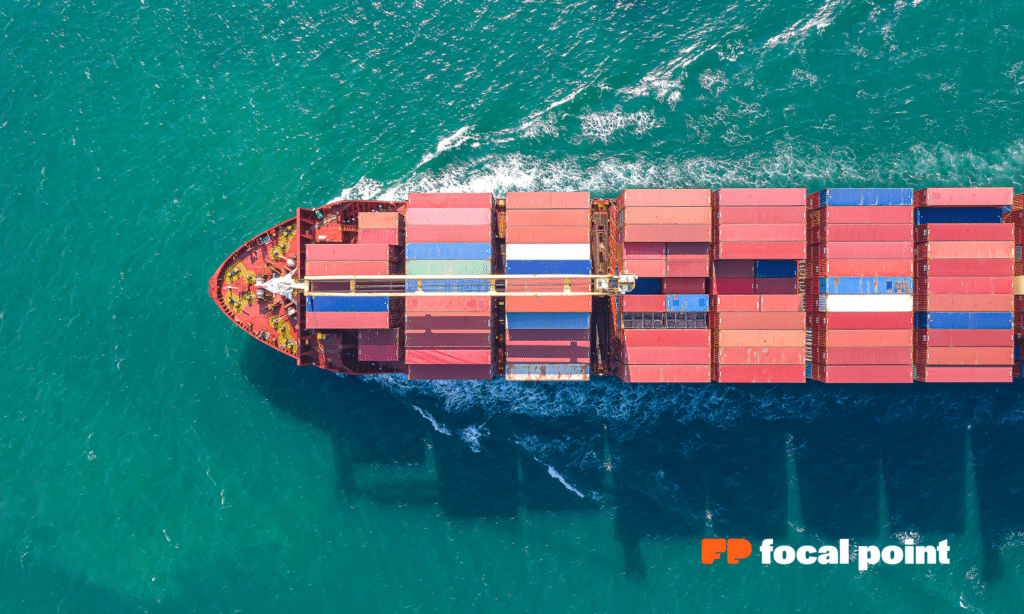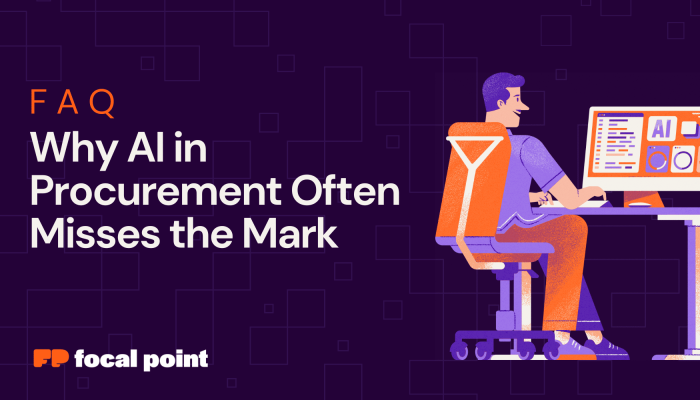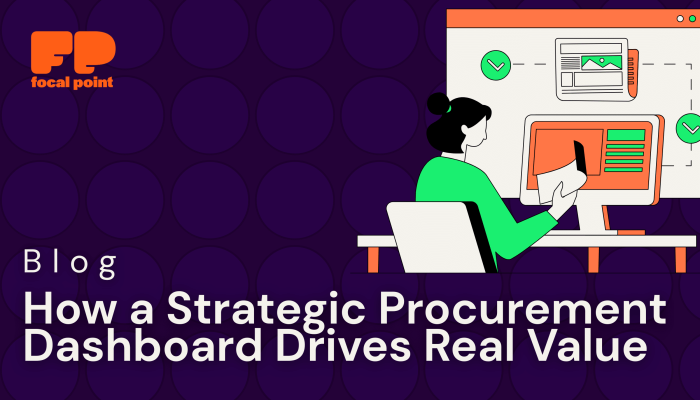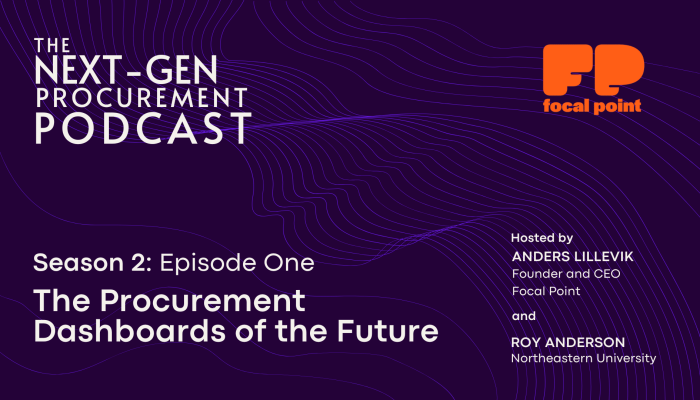Today, global markets are more intertwined than ever. A strong strategy and procurement system are needed to address global procurement challenges.
A key challenge for procurement leaders in large enterprise companies is ensuring that employees and leadership work together across different parts of the organization.
This is a common procurement challenge that can lead to complications and the risk of increased procurement costs. Supply chain issues should always be monitored, especially because of the effects of COVID-19. During this time, 75% of businesses reported problems with their supply network.
Not having the right digital tools and interconnected procurement management systems can slow down quick changes and smart sourcing strategies.
Building solid relationships with suppliers is a top challenge for 40% of procurement professionals managing their business logistics in 2024. At the same time, 40% consider building stronger resilience very important.
In 2024, focusing on the risks in global supply chains will be key.
Focal Point’s procurement professionals have decades of combined experience navigating these global procurement challenges and are available today to help you. Feel free to Book a Demo with us to learn more.
Key Takeaways
- Procurement professionals find building supplier relationships a significant challenge in 2024.
- Increasing resilience in supply chains is essential for procurement leaders.
- Supply chain disruptions occurred in 75% of companies post-pandemic.
- Global trade compliance costs add 2-3% to total world trade values.
- Limited visibility beyond Tier 1 suppliers afflicts 65% of procurement leaders.
Understanding the Landscape of Navigating Global Procurement Challenges Effectively
Global procurement is full of challenges and opportunities. Businesses must understand global market conditions, be prepared for natural disasters, hedge with state-of-the-art procurement tech, and be sustainable.
They should also pay close attention to their risk management strategy and be ready to change with new market and customer needs.
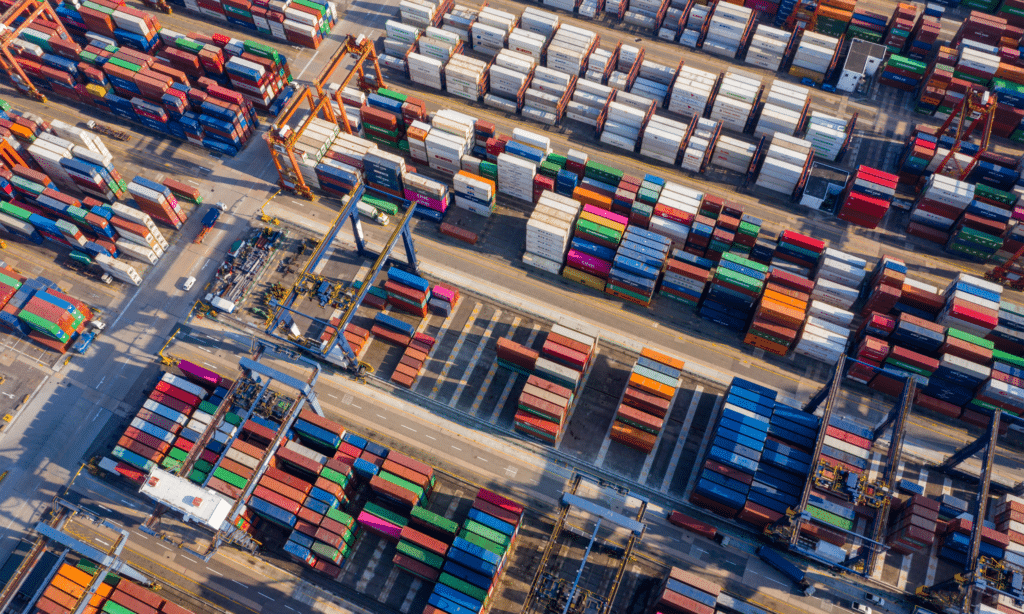
Key Challenges of Global Markets
Global Supply chain networks face many challenges. Poor logistics and cargo theft are big problems in developing countries.
Geopolitical and trade problems, including tariffs, can raise costs and make logistics difficult.
Global inflation, like high energy prices, can also increase costs. Currency fluctuations and To fight these issues, it’s important to improve the visibility of the supply chain, maintain supplier management well and keep real-time data on inventory.
Here is a List of 8 Key Challenges for Procurement in 2024
1. Logistical Complexities
Managing complex logistics across different countries with varying regulations, customs procedures, transportation infrastructure, and documentation requirements. This can lead to delays, penalties, or seizure of goods if not properly handled.
2. Supply Chain Disruptions
Unforeseen events like geopolitical tensions, natural disasters, pandemics, and conflicts can severely disrupt global supply chains, causing delays, shortages, and increased costs. Building resilience and visibility into supply chains is crucial.
3. Regulatory Compliance
Adhering to different laws, regulations, trade agreements, and compliance requirements across multiple countries and jurisdictions adds complexity and costs to global sourcing operations.
4. Currency Fluctuations
Fluctuations in currency exchange rates can impact the cost of goods and services sourced globally, requiring strategies like hedging or forward contracts to mitigate risks.
5. Geopolitical Instability
Political and economic instability in different regions, along with rising protectionism and trade tensions, can disrupt supply chains, increase costs, and necessitate diversification of sourcing strategies.
6. Talent Management
Attracting and retaining skilled procurement professionals with expertise in areas like risk management, data analysis, and stakeholder management is a growing challenge for large organizations.
7. Data Security and Cybersecurity
Increased reliance on digital platforms and automation exposes procurement to cybersecurity threats like data breaches, requiring robust security measures and data governance.
8. Sustainability and Ethical Sourcing
Meeting consumer demands for sustainable and ethical products by ensuring transparency, auditing suppliers, and addressing environmental and social impacts across the supply chain.
These challenges highlight large corporations’ complexities in global procurement, necessitating proactive strategies, digital transformation, collaboration with suppliers and partners, and continuous monitoring and adaptation to maintain competitive advantage and business continuity.
Technological Evolution
Technology is improving procurement. Advanced software and tracking systems improve how we see and control logistics and transportation. Yet, there’s a shortage of skilled procurement professionals who can manage these changes. So, it’s not just about having the best tech. It’s about having the best people to use it well and the best procurement software.

Sustainability and Customer Expectations
Companies now focus on sustainability when buying because customers want ethical products. This makes buying harder, as companies need to consider cost, quality, and ethics. Good traceability makes the supply chain transparent. This is key to showing buyers and others that buying is done the right way.
These trends will continue throughout the remainder of 2024 and into 2025, causing companies to find new and better ways to source goods and services, focusing on strong partnerships and innovation.
Companies must optimize sustainable procurement as well as cost savings.
Building Resilient Supply Chains- Global Sourcing
Strong supply chains are key, as we saw firsthand during the COVID-19 crisis and the market challenges that changed global sourcing logistics. These hurdles have pushed companies to focus on making their supply chains tougher in 2024.
Importance of Supply Chain Resilience in 2024
The pandemic showed how weak supply chains can be, with shipping prices skyrocketing. Being quick to change is important.
- Supply chain resilience has become crucial in the face of persistent disruptions caused by geopolitical tensions, extreme weather events, cyber threats, pandemics, and transportation bottlenecks.
- Organizations prioritize resilience over efficiency and low costs, recognizing the need to fortify supply chains against potential disruptions.
- Building resilience involves strategies like diversifying the supplier base, increasing visibility through data and analytics, adopting new technologies like RFID, and leveraging techniques like nearshoring and strategic sourcing.
- Resilient supply chains are characterized by domestic production capabilities, diverse suppliers, built-in redundancies, secure critical infrastructure, and robust data networks.
- The U.S. government emphasizes supply chain resilience through initiatives like the White House Council on Supply Chain Resilience, which aims to strengthen domestic manufacturing and industrial competitiveness.
- Companies are increasing investments in supply chain innovation, disruption detection processes, and technologies that enable greater visibility and scenario planning to enhance preparedness.
- Transforming vulnerabilities into strengths through resilience strategies helps supply chains adapt and maintain operations during unforeseen disruptions, providing a competitive advantage.
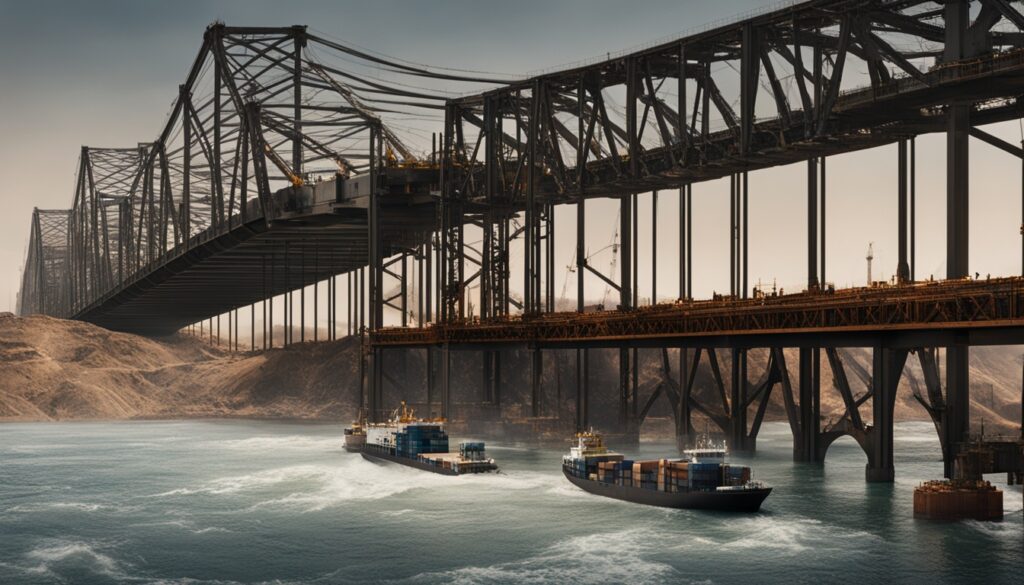
Strategies to Enhance Agility and Adaptability
Companies can strengthen their supply chains by using various buying methods. Getting products from many places helps avoid problems with just one supplier. COOs now focus on strengthening their supply chains and being more flexible. For places like the U.S., working with more suppliers means losing less money when critical challenges arise.
Using the latest technology and data helps spot risks with international sourcing. It’s also key for a green business. Choosing clean energy like solar power benefits the planet and saves money.
Leveraging Technology for Enhanced Supply Chain Planning
Navigating the complexities of global procurement effectively requires the strategic implementation of intelligent technology and robust data analytics. The supply chain disruptions experienced between 2021 and 2022 contributed significantly to the rise in U.S. prices, highlighting the critical importance of real-time inventory monitoring and proactive planning. The Index’s peak in December 2021 underscores the vital role that optimized supply chain planning plays in mitigating risks and ensuring business continuity.
Embracing Sustainability for Resilient Supply Chains
As organizations seek to strengthen their global procurement strategies, focusing on sustainability can yield substantial benefits. Companies can identify opportunities to reduce emissions and minimize their carbon footprint by conducting thorough assessments of supply chain environmental impact. Prioritizing eco-friendly and cost-effective practices bolsters supply chain resilience and aligns with the growing demand for corporate social responsibility.
Investing in sustainable procurement practices proves advantageous for both the bottom line and the planet, positioning organizations for long-term success in an increasingly competitive global marketplace.
Managing Regulatory Compliance in Procurement
Managing regulatory compliance in procurement is vital. It ensures a company follows laws and rules while keeping its operations flowing well. This task includes dealing with global rules, tariffs, data protection laws, and fair work practices. If the company doesn’t follow these rules, it could face heavy costs, work problems, and reputation harm. So, having good strategies to meet these rules is key for those in charge of buying.
Navigating International Regulations and Tariffs
Dealing with many international rules and tariffs is a big challenge for global buyers. Issues like changes in political relationships, trade arguments, and health crises make it even harder. Staying on top of this requires using modern tools for monitoring and making quick decisions. These help run global trade costs better. Also, it’s becoming increasingly important to stick to rules about the environment and how a business acts in society.
Adhering to Data Protection Laws
Adhering to data protection laws is a must in our digital world. For example, the GDPR helps protect personal information in the European Union. Around 60% of top CPOs are judged by how well they follow these rules and manage risks. More than half of them say using technology is key to protecting data and following the GDPR. Robust cybersecurity measures and risk mitigation are a given. However, many procurement teams find it difficult to manage procurement data.
Ensuring Ethical Labor Practices
40% of CPOs stated that their procurement organizations don’t define or measure their own set of relevant ESG factors, even though 60% measure suppliers at some level on sustainability metrics.
Adding ethical work practices to buying is very important for today’s businesses. It meets the needs of both the rules and what society expects. Ethical work isn’t just about being a good company. It also lowers the risk of not following the rules. Those in charge should check their suppliers well to be sure they treat their workers fairly and follow the rules. With complex buying on a global scale, handling compliance well is key to keeping these good work rules in place. Onboarding a new supplier usually takes at least 15 to 28 days or more because of all the checks needed.
Strategies for Effective Cost Management
Proper cost management is key when dealing with budgets and sourcing items strategically. Conducting thorough contract reviews is a prime method for boosting your savings. Review any contract you haven’t looked at in over three years, and you’ll likely find opportunities to save money.
Bringing all procurements under one roof and even one dashboard can slash costs. This makes the procurement manager’s job more efficient and makes suppliers compete more, which drops supply prices. This approach is not just about saving money. It also strengthens your buying power, helping you get closer to hitting budget targets.
Using automation is a game-changer for cost management. It cuts out manual work, which means less money spent on operations. Digital transformation powered by artificial intelligence makes finding new suppliers faster and more efficient. This emerging technology is improving daily and may reduce the time needed by over 90% from the usual three months.
Category management is another smart tactic. It reveals where you can avoid costs. By strategically focusing on certain purchase types, you can better control spending. This method also uncovers more opportunities to save on spend.
Then there’s having the right data: it’s crucial for any cost-saving effort. Good, timely data lets you compare your suppliers’ prices with the market. This can show you where there might be room to cut costs.
Outsourcing small but many purchases is a neat trick to save resources. By doing this, your team has more time for important strategic work. It also ensures your budget is spent where it matters most.
Ensuring Data Security and Privacy
Digital technologies in procurement bring new data security and privacy challenges. Protecting supplier data, including trade secrets and personal information, from cyber threats maintains trust and meets supply chain rules.
Challenges in Data Security
Around 65% of procurement professionals say it is tough to see past Tier 1 suppliers. This lack of perspective makes data leaks and unauthorized entry more likely. Also, 75% of firms faced problems in their supply chain due to COVID-19, showing data safety weaknesses.
Implementing Robust Data Protection Measures
Companies need strong data protection. They should use good encryption and the latest cyber tools and monitor the situation. They must also update security often and teach employees about online dangers. This helps safeguard buying data and improves data protection in the buy chain.
Regular Security Audits and Compliance Checks
Doing regular security checks and meeting compliance rules is key. It finds weak spots and keeps up with laws, cutting the risk of data leaks. Following strict security and compliance rules saves money, too, about 2-3% of world trade tariffs. Moreover, being ethical and sticking to rules boosts a company’s image. It can attract more customers and investors by showing it’s fair and sustainable.
Improving Supplier Relationships and Performance Management
In global procurement, building strong, clear relationships with suppliers is key. It leads to better operations and less risk. Procurement pros should aim to work closely with suppliers. They can do this by looking for ways to help each other, checking supplier work closely, and being open to changing contracts. These close ties help find new solutions and make everyone involved more successful. This has proven vital, especially after facing supply chain problems.
Maximizing Value through Supplier Collaborations
Being a team with suppliers boosts how much value companies get. This means working closely with suppliers to use their skills to create improved systems and raise quality. Making these partnerships better through technology is a top goal for many companies. Companies that work well with their suppliers see large advantages over their competitors. They spend less, get more reliable services, and stay ahead of their competition.
Mitigating Risks Through Comprehensive Supplier Assessments
Conducting thorough supplier evaluations is crucial in minimizing potential risks within global procurement operations. By proactively assessing suppliers’ capabilities, financial stability, and potential vulnerabilities, organizations can identify and mitigate risks that could significantly impact their business continuity. Leveraging specialized software solutions streamlines the process of risk identification and management, enabling companies to respond swiftly and effectively to potential threats. Implementing robust supplier assessment strategies protects against unforeseen disruptions, safeguarding organizations from the detrimental consequences of supplier non-performance or instability.
Emphasizing the Importance of Due Diligence in the Post-COVID Era
The advent of the COVID-19 pandemic has exposed the fragility of global supply chains, with most companies facing heightened risks and uncertainties. In this challenging landscape, the importance of meticulous supplier due diligence cannot be overstated. As organizations navigate the complexities of the post-COVID era, a renewed focus on comprehensive supplier evaluations is paramount. By investing in stringent vetting processes and leveraging cutting-edge risk assessment tools, companies can fortify their supply chains against the evolving threats posed by the pandemic and beyond. Prioritizing supplier due diligence is not merely a prudent approach but an essential strategy for ensuring resilience and adaptability in an increasingly volatile global procurement environment.
Navigating the Intricacies of Global Procurement Logistics
Global procurement logistics is fraught with numerous challenges that can hinder the smooth flow of goods and services. From navigating complex customs procedures and contending with subpar transportation infrastructure to mitigating the ever-present risk of theft, organizations must remain vigilant and proactive.
The high costs associated with international transportation can significantly strain budgets, exacerbating the pressure on various components of the supply chain. Managing the intricacies of customs regulations across multiple jurisdictions requires meticulous attention to detail and a commitment to maintaining accurate and up-to-date documentation. Failure to adhere to these stringent requirements can result in costly delays and substantial penalties.
Mitigating Supply Chain Disruptions and Enhancing Efficiency
Supply chain disruptions can lead to significant delays and missed opportunities, undermining an organization’s ability to capitalize on market demand. Inadequate transportation infrastructure, particularly in developing regions, poses a formidable obstacle to the efficient movement of goods. Engaging the services of reputable logistics partners can significantly alleviate these challenges, introducing flexibility and efficiency through the utilization of 3PL and 4PL services.
As goods traverse international borders, implementing robust security measures is essential to safeguard against the risk of theft. Moreover, ensuring that personnel are well-trained and strategically positioned is crucial for maintaining the seamless operation of the entire supply chain.
Embracing a Holistic Approach to Global Procurement Logistics
Organizations must adopt a comprehensive and integrated approach to overcome the myriad challenges associated with global procurement logistics effectively. By simultaneously addressing issues related to transportation, customs compliance, and security, companies can significantly enhance the efficiency and reliability of their global supply chains. This, in turn, facilitates more effective logistics management, enabling organizations to respond swiftly to market demands and seize emerging opportunities.
By investing in the necessary infrastructure, expertise, and partnerships, companies can navigate the complexities of global procurement with greater ease and confidence, ultimately positioning themselves for success in an increasingly competitive and interconnected business landscape.
Preparing for Supply Chain Disruptions
When supply chains face problems, they cause major issues for businesses. They have to deal with changing customer needs, a lack of products, and where to keep items. This can hurt their profits and lead to less work getting done.
Proactive Measures to Mitigate Disruptions
Acting ahead to manage risks is key for businesses against global woes. They should have a smart team and use data to see the whole picture. They should focus on where they need to work the most and set up special teams19. This way, they are ready for almost anything and can test how to handle shocks19.]
Leveraging Technology for Real-Time Insights
Getting real-time data can help with buying and selling smarter. For instance, tracking how suppliers are doing financially helps. So does having a good eye on shipping through control centers. This makes companies stronger, even against bad weather and political upsets.
Today, most businesses have rethought their ways to avoid future troubles. So, spending on tech that monitors risks is a big deal now.
Establishing Contingency Plans
Having a backup plan is crucial when things go wrong. Companies should find other ways to move goods and not rely on just one place for stuff. They should also invest more money in tools, tech, and new ideas, as many are planning to do by 2024.
By doing this, they protect their business from major breaks due to supply chain woes. They keep going strong, no matter what comes their way.
Prioritizing Product Quality Excellence in Global Procurement
Maintaining the highest standards of product quality is a paramount consideration in the realm of global procurement. To ensure that products consistently meet or exceed expectations, organizations must implement rigorous quality control measures, meticulously select dependable suppliers, and conduct regular audits.
By establishing a robust quality assurance framework, companies can safeguard their operations against potential issues that could arise from subpar materials or manufacturing processes.
Investing in Quality Control and Supplier Relationships
Dedicating resources to comprehensive quality control procedures is essential for identifying and rectifying deviations from established standards.
This proactive approach helps to minimize the risk of defective products reaching end-users, thereby protecting the company’s reputation and bottom line. Moreover, cultivating strong relationships with reliable suppliers who demonstrate a steadfast commitment to quality is crucial.
Organizations can ensure a consistent flow of high-quality materials and components by partnering with suppliers who share the same dedication to excellence. Regular audits of supplier facilities and processes serve as an additional layer of assurance, enabling companies to promptly verify compliance with quality standards and address any potential concerns.
By prioritizing product quality excellence and investing in the necessary control measures, supplier relationships, and auditing processes, organizations can fortify their global procurement operations against potential pitfalls.
This unwavering commitment to quality protects the business from the detrimental effects of inferior products and reinforces its reputation as a reliable and trusted provider in the global marketplace.
Regular Audits and Inspections
Audits and checks are equally important for quality control. Ensuring suppliers follow their agreements and meet quality standards. These checks use indicators like delivery and quality to track supplier performance.
This makes suppliers improve and be more responsible, leading to better overall quality management.
In Summary
Navigating the complexities of global procurement and logistics in 2024 and beyond requires adaptability and embracing emerging technologies. As highlighted throughout this article, fostering strong supplier relationships is crucial for ensuring a reliable supply of goods and discovering innovative sourcing opportunities worldwide. However, the diverse regulatory landscape and compliance requirements across different countries pose significant challenges, necessitating diligent monitoring and expertise.
Developing a comprehensive sourcing strategy that goes beyond price considerations is essential for mitigating potential disruptions and optimizing procurement processes. This involves thoroughly evaluating suppliers, managing risks, and prioritizing product quality. Staying attuned to currency fluctuations and conducting regular quality inspections for goods sourced from various locations are critical measures.
Preparedness for major disruptions, such as geopolitical conflicts or natural disasters, is paramount. Proactive planning, leveraging technology for real-time insights, maintaining open communication with suppliers, and continuously monitoring global developments are key strategies for effectively navigating the complex world of global procurement.
Companies can thrive in the global marketplace by implementing these best practices and focusing on innovative sourcing approaches.
If you are a procurement team leader in a large corporation seeking expert guidance and cutting-edge solutions to optimize your global procurement strategies, Focal Point is here to help.
With decades of combined experience navigating the complexities of global procurement, Focal Point’s professionals are ready to assist you in overcoming challenges and achieving your procurement goals.
Don’t hesitate to reach out to learn more about how Focal Point can support your organization’s success. Book a demo today to discover the difference Focal Point can make in your global procurement journey.
